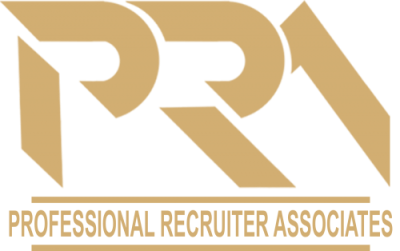How to Change Careers: Find What to Pursue Next
 im-261784
im-261784
In brief
- Think of each role along your career path as an opportunity to explore.
- Expand your network and make connections to learn more about new jobs.
- Identify your strengths and consider training or job shadowing to expand your skill set.
There are many reasons people want to switch careers. You may be looking to grow, feel that you have advanced as much as you can in your current job or feel burned out. But pursuing a career in a new industry can be intimidating, particularly if you are working remotely. More than six million people decided to change occupations, according to 2015 and 2016 data from the Bureau of Labor Statistics. That was before the pandemic led many to explore different career opportunities, either by choice or necessity. If you are considering changing careers, here are some steps you can take.
To find a new career, first identify your strengths.
You know yourself better than anyone else. While asking friends and family for advice is sometimes helpful, those people will be much less creative than you can be when dreaming up alternative career paths, says Dorie Clark, author of “Entrepreneurial You: Monetize Your Expertise, Create Multiple Income Streams, and Thrive,” and a professor at Duke University’s Fuqua School of Business.
For example, if you have worked as a lawyer, you might be advised to try to become a journalist who writes about the law, Ms. Clark says. But your skill set is probably very broad. Perhaps you are a strong public speaker because you have developed oral argumentation skills, or a thorough researcher because of the preparation you have done while studying case law. You may also be a convincing salesperson because you have marketed yourself to clients. “Other people aren’t going to expend the time or the effort to think broadly on your behalf about what you can do,” Ms. Clark says.
Reflect on your current job, as well as any other roles you have had.
You could make a list or keep a journal of your likes and dislikes about your current role, says Ebony Joyce, a career coach and founder and consultant at Next Level Career Services. It is critical to be aware of what you don’t want to do, as well as what you do, so you can factor that into your job search.
Don’t limit yourself.
People often talk about their careers in absolute terms, says Dave Evans, co-author of “Designing Your Work Life: How to Thrive and Change and Find Happiness at Work,” and co-founder of the Stanford Life Design Lab at Stanford University. He says people ask themselves whether the job they are in is “the one,” when their careers are actually meant to be filled with exploration. He suggests approaching a career change with curiosity, rather than looking for an absolute perfect fit in order to set yourself up for success.
Do your research to get new career ideas.
The Bureau of Labor Statistics employment projections program can help you identify occupations that are projected to have more job openings. You could also look at employment, wage and transfer data, which can help point you toward career options you might not have considered. Employment and wage data show how many jobs there were in a particular occupation and how much money those workers made. You could also check out employee reviews and salary comparisons on Glassdoor or Indeed. Ladders lists vetted jobs where the compensation is at least $100,000.
Grow your network.
The importance of networking can’t be overstated when it comes to career shifts, says Ms. Clark. “If you don’t have a track record in a certain industry, it is much harder to convince people to take a chance on you,” she says. “You need someone who’s willing to expense political capital on your behalf to get you in the door.”
Set up informational interviews to better plan for a career transition.
Reach out to people who are doing what you want to do and ask if they have some time to talk about their career paths. If you don’t know where to find them, LinkedIn would be a good place to look. The goal of information interviews isn’t to pitch yourself, but rather to learn as much as you can. “It is a way to pick somebody’s brain, and understand a new company and a new industry,” says Christy Noel, a career coach and author of “Your Personal Career Coach.”
How to have a successful informational interview.
- Explain the purpose. Let the professional know you would like to learn more about what they do and how they got to where they are. “These are ‘get the story’ conversations, not ‘get the job’ conversations,” Mr. Evans says.
- Plan your questions. To make the most of the meeting, ask yourself what specific knowledge this professional can provide and plan to get answers to those questions. Perhaps this person came from a nontraditional background and can tell you how they got hired. Or maybe they can explain what qualifications are most important in a new hire.
- Be respectful of the person’s time. If you ask for 20 minutes of their time, don’t go over that.
- Be open to hearing the negatives as well as the positives. During the course of conversation, you might learn that what you thought was interesting isn’t something you want to do. This is all part of the process.
- Ask who else you should talk to. Expand your network by asking who else you could benefit from talking to and ask for an introduction, if appropriate. Don’t forget to thank the professional for their time in a follow-up email.
Consider taking classes as you change your career path.
Think about the additional skills you may need. If you think you will require formal qualifications, such as a particular undergraduate or master’s degree, it is helpful to know that sooner rather than later and factor that into your plans. You might also consider working with a career coach who can help you assess your skills and what you want to do next.
You can also take classes on sites such as LinkedIn Learning, Coursera or Udacity to learn more about the field you want to enter and make yourself more marketable.
Think about whether it’s time to change your digital presence.
You should make sure you have an online presence where recruiters are searching that highlights your relevant skills and experience, says Jenny Logullo, a career coach and founder of Workplace Worth Academy. Some employers use LinkedIn as a search engine to find candidates. You “can organically connect with thought leaders, hiring managers and recruiters if you are leveraging those keywords in your profile,” Ms. Logullo says.
Try a collaboration…
If you are interested in working for another department within your organization, you could offer to collaborate, says Mr. Evans. When employers are under tighter budget constraints, they may be more tolerant of partnerships across teams and departments, he says. If you have the bandwidth, you can offer to consult on some projects as a way to get noticed by the manager, even if it is remote. “This stuff is much easier to do than you think—if you take the initiative,” he says.
…Or a job shadow.
Consider spending some time shadowing a professional whose work interests you. You could ask to spend a few hours attending meetings with a professional at your company who works in another department or set up a more formal job-shadowing arrangement. When in-person opportunities aren’t as feasible, you could try a service such as Virtual Job Shadow, which allows you to watch day-in-the-life videos about professionals in a variety of careers.
Be patient.
The early days of networking in your desired industry may feel slow, says Mr. Evans. It can take at least three or four months and dozens of conversations before you become connected with people who are hiring, or find out about job openings. But the process is still more efficient than blindly applying for jobs through a portal, he says.
As you make a career shift, play up your transferable skills in job applications.
Once you do find a position you would like to apply for, spend the time to craft a compelling application. You should emphasize your transferable skills in your cover letter. If you don’t have experience in the industry you want to join, consider playing up your skills with a functional or hybrid résumé format.
Use your network to get your job application in front of a real person.
While people who submit applications without a referral typically have a 3% chance of getting an interview, those with a referral have a 50% chance, career coach Ms. Noel says. Many job seekers apply for positions in online portals and leave it at that, she says: “Then you’re in the black hole of résumés, and you don’t know if you’ll ever get out.” Try to get your application in the hands of a person at the company. This is where your time spent networking can help you. You could use LinkedIn connections, your alumni network or connections through volunteer or professional networking organizations to connect with the employer and ensure someone other than a computer program reads your résumé.
Be your own biggest fan.
You might assume that your close friends and family will be your biggest supporters as you reinvent yourself, but that is not always the case, says Ms. Clark. There is often a tendency among the people closest to you to push for a more conservative path. They might say things like, “Why would you throw away all of your training?” Or “Can’t you just get another job doing X,Y,Z? You’re so good at it!” These comments may be meant well, but they can feel demoralizing, and you might get the impression they don’t believe in you, Ms. Clark says. So don’t lose faith, and seek out connections who can support you along the way.

Professional Recruiter Associates